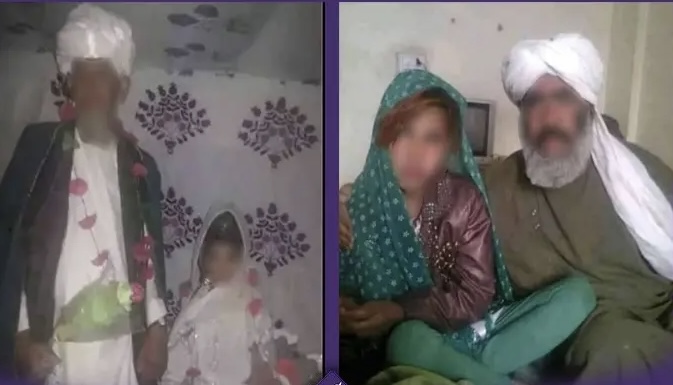RASC News Agency: In the shadows of a muted international conscience and amid the deafening silence of global media, a profound humanitarian tragedy is unfolding in northern Afghanistan. Local sources from Takhar Province report a systemic campaign of forced marriages orchestrated by Taliban fighters targeting young and adolescent Afghanistani girls, many of whom are compelled into becoming third or fourth wives. These actions flagrantly violate Islamic tenets, moral decency, and universally accepted human rights standards. According to witness accounts, Taliban members storm homes under the cover of darkness, forcibly marrying girls in ceremonies often attended by Taliban-appointed witnesses, both male and female. In exchange, families receive meager sums typically a few thousand Kabuli rupees offered as dowries. The reality, however, is far more coercive than consensual: under direct threats of violence, families are given no choice but to surrender their daughters to a life of captivity.
Once the forced marriages are conducted, the girls are swiftly transported to undisclosed locations in southern provinces or remote tribal regions. Families are left in an anguished void, stripped of information or contact with their daughters an absence that has unleashed a tide of psychological trauma and community-wide fear. One of the most harrowing incidents emerged from Ghor Province, where a young woman in Taywara district resorted to self-immolation after being threatened with forced marriage to a Taliban member. Her tragic death has become a haunting symbol of the desperation faced by countless Afghanistani women who, under Taliban rule, are left with no recourse but death itself to reclaim their dignity and agency.
Human rights defenders have unequivocally condemned this practice, framing it not only as a brutal violation of women’s rights but also as part of a broader architecture of social, economic, and psychological oppression. Forced polygamous marriages especially those executed without the consent of both parties are in direct contravention of Islamic jurisprudence and reflect a systematic abuse of religious authority to maintain patriarchal control. What exacerbates the crisis further is the complete absence of legal oversight or institutional accountability. Under Taliban governance, no independent judicial system, civil watchdogs, or investigative mechanisms exist to document or address these atrocities. This vacuum has intensified concerns among international human rights organizations, yet no substantial intervention has materialized.
Critical questions remain unanswered: Where are these girls being taken? Do they have any means of returning or contacting their families? What level of complicity exists within the Taliban’s leadership hierarchy? And most urgently does the global community intend to bear witness in silence, or will it act? These forced marriages, disappearances, and the systematic erasure of women from public life are not isolated incidents they are deliberate tools in a broader campaign of gender persecution. They are deep, festering wounds in the social fabric of Afghanistan, sustained by impunity and indifference. If the international community continues to avert its gaze, it not only abandons Afghanistan’s women to institutionalized brutality but also emboldens authoritarianism globally. The world cannot claim ignorance. It now faces a moral reckoning: Will it choose silence or justice?






